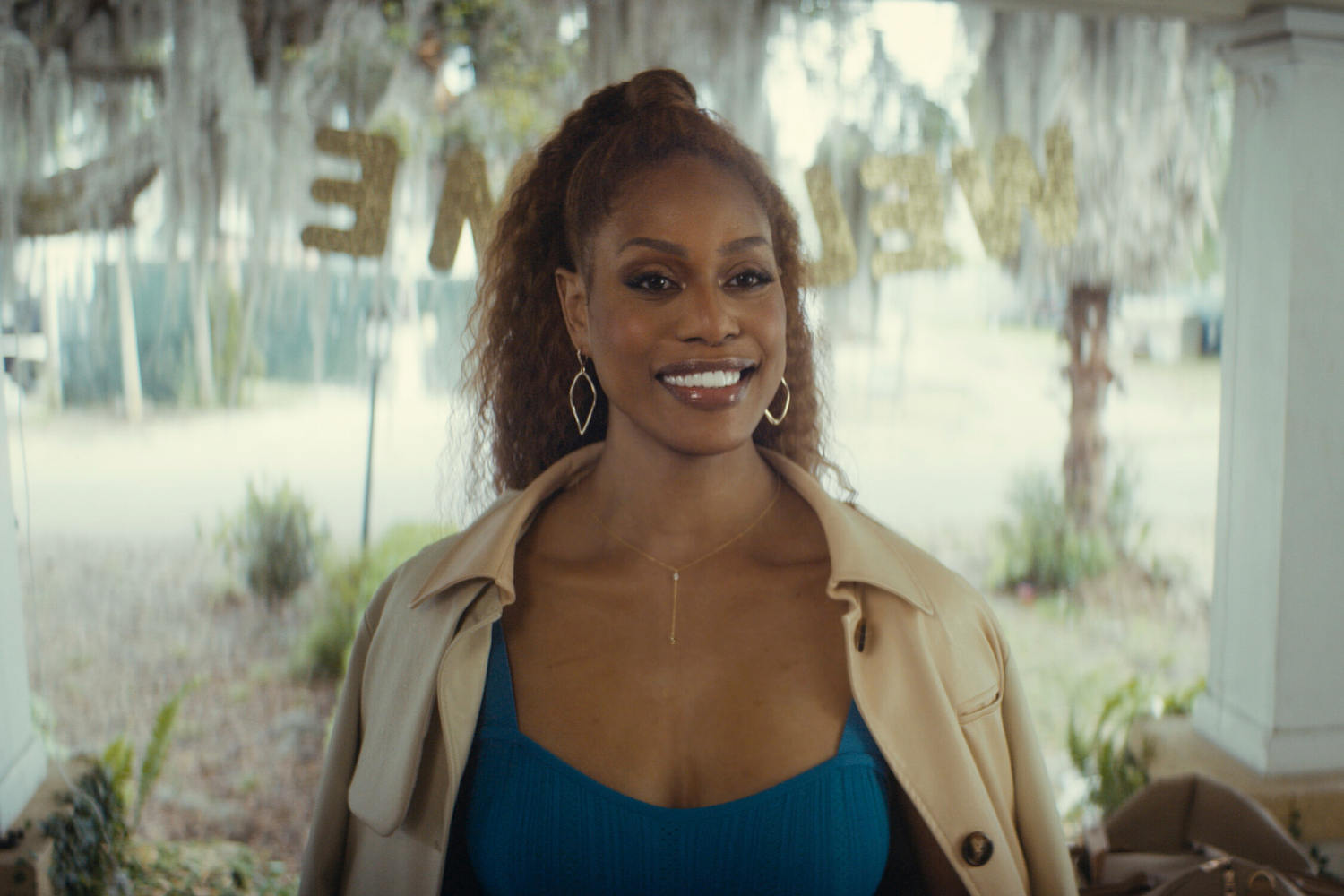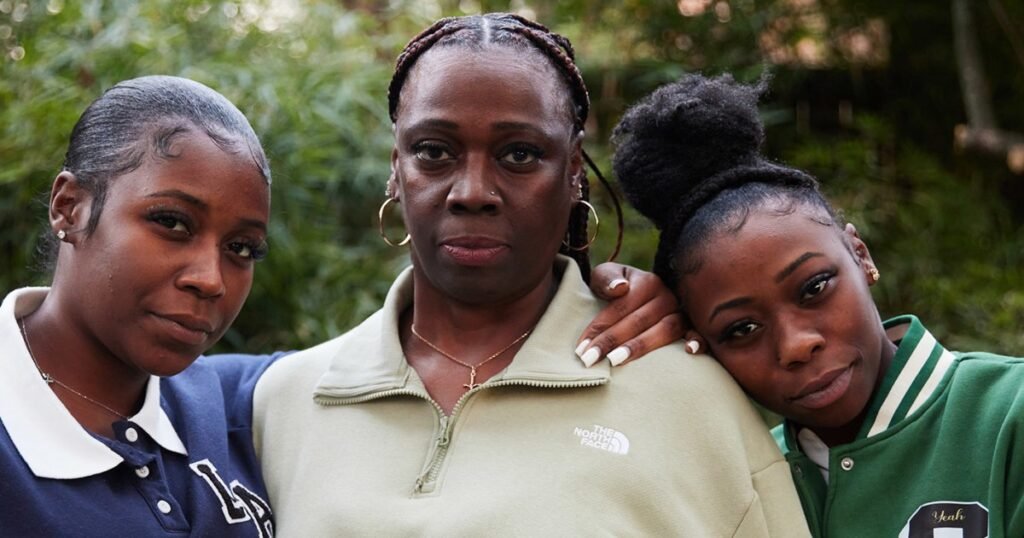
Laverne Cox is no stranger to blazing her own trail. In 2014, while playing prison inmate Sophia Burset on Netflix’s “Orange Is the New Black,” Cox became the first transgender person to grace the cover of Time magazine and to be nominated for a Primetime Emmy Award in any acting category. A year later, she won a Daytime Emmy Award for hosting and executive-producing “The T Word,” an MTV documentary about the lives of seven trans youths. In 2017, on the short-lived CBS legal drama “Doubt,” she became the first trans actor to play a trans character in a series regular role on broadcast television.
But with the new Prime Video family sitcom “Clean Slate,” which premieres Thursday, Cox now gets to add a new title to her illustrious résumé: star, co-creator and executive producer of her own show. The eight-episode series follows Desiree Slate, played by Cox, as she returns home to Mobile, Alabama, 23 years after she moved to New York as a teenager. She goes back to reconnect with her father, an old-school car wash owner named Harry — who, upon receiving an email from his estranged child, is shocked to discover that the son he expected to find on his doorstep is now a transgender woman.
For Cox, 52, the opportunity to headline her own show has been a dream over 20 years in the making. Seven years ago, Cox and her manager agreed to meet with writer-producer Dan Ewen, who pitched them the idea of a trans woman returning to her roots to mend fences with her father. Within a week of their four-hour meeting, Ewen had written a draft of the pilot script, which eventually found its way into the hands of Norman Lear, the heavyweight producer known for creating popular ’70s sitcoms such as “All in the Family,” “One Day at a Time,” and “The Jeffersons.”
After the idea languished in the development and pitching stages for a few years, Cox admitted that she was worried that networks and studios were not interested in buying trans stories. But in 2022, on Lear’s 100th birthday, Amazon formally ordered a full season of “Clean Slate.” (Lear died the following year.)
Much like Lear’s past sitcoms, “Clean Slate” attempts to tackle hot-button issues in an inclusive, accessible way, avoiding the tendency to hit viewers over the head with a clear message but instead opting to shed light on the everyday struggles of marginalized communities.
“As much as he tackled controversial issues, he leads with humor,” Cox said of Lear. “It was about finding the humor in our everyday lives … and we were not doing humor that’s like punching down. Good humor comes from knowledge — from knowledge of a community, of a group of people.”
With that approach in mind, the creative team wanted to honor the specificities of Cox’s own experiences of growing up in a small town in Alabama, which the actor said “was triggering every day, because I don’t want to go there in my real life.” Much like her character Desiree, Cox feels a kind of nervous energy any time she returns to her hometown, where she recalls enjoying the “wonderful” musical performances in church but feeling tremendous shame about her sexuality and innate femininity.
“The trauma that I experienced growing up in the South was real,” she said, “but there have been really scary, awful, horrible moments in my life that turned funny for some reason.”
Although she is usually able to put some distance between herself and her characters, Cox admitted that Desiree — whom she views as a younger, “messier” and “less healed,” but “more elitist and judgmental” version of herself — is the closest she has ever come to playing herself onscreen. Some of the storylines are even taken directly from her own life, including one where a pastor effectively refuses to acknowledge Desiree’s identity as a trans woman by giving her a handshake rather than a hug after a service. Cox recalled the real-life incident, where her mother informed her, following a pastor’s handshake, that he “hugs the women in the congregation, and he shakes the hands of the men.”
As one of the most famous trans women in the world, Cox acknowledged that there is a kind of unspoken loneliness that comes with being among the first to break a glass ceiling in Hollywood. For the first two decades of her career in New York, Cox recalls being told that she was “delusional” for thinking that she could have a mainstream acting career as a Black trans woman because “no one had done it before.” Since effectively becoming the face of the trans movement a decade ago, she has felt the need to sacrifice parts of her personal life to commit herself to advocating for a cause much bigger than herself.
“I just had a breakup recently, and honestly, part of the breakup was about this political environment that we’re in and me launching this show and knowing that I need to be of service right now to the best of my ability,” Cox said. “I need to let go of any person, place or thing that’s going to get in the way of me serving my community first in the way that my higher power wants me to.”
“Clean Slate” debuts at a particularly fraught time for the trans community. Since returning to power last month, President Donald Trump has signed multiple executive orders targeting the trans community in particular — proclaiming that there are only two biological sexes, further restricting transition-related care for minors nationwide and barring trans people from openly serving in the military.
Cox, who has long voiced her opposition to policies restricting the rights of trans people, offered a frank assessment of the current social and political climate: “It is what it is.”
“There’s no one opposing them, which is a problem,” Cox said of conservatives who support laws and executive orders targeting trans people. “We have to accept that, and then we have to get through it psychologically, emotionally, and we have to get through it as a community. When I say community, I am particularly talking to the LGBTQ+ community, but I’m talking to Black people. I’m talking to immigrants, migrants. I’m talking to working-class people in general because, girl, we’re all getting it.”
Cox said she feels grateful in this current political climate to have a platform to help further humanize the Black and trans communities.
“What I want to say to trans folks and everybody out there struggling is that victimhood is something we choose,” she said. “Yes, the government can oppress us, and they are and will, but I am the master of my fate, the captain of my soul. I refuse to be a victim.”
Source link



